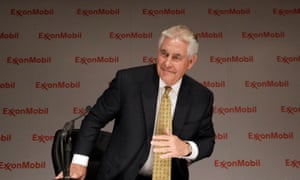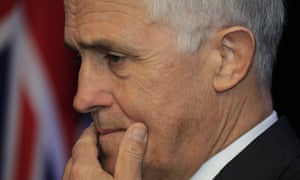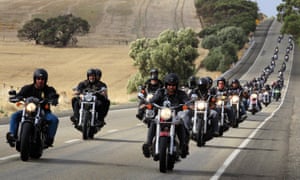*THE
WORKER*
BRISBANE,
JUNE 8, 1895.
The
Boot Trade Dispute.
The Members of the Boot Trade Union assembled at the
Trades hall on Monday evening at 7 o'clock, and to the number of
nearly 500 marched to the old “screaming ground” at the corner of
Wharf and Adelaide streets, headed by a splendid brass band. Torches
were not allowed by the mayor, therefore the procession was not so
brilliant as it might have been. The absence of lights, however, had
a most striking effect on the spectators, who could not help
remarking the determined appearance of the men as they marched along
in the shadows cast across Queen-street by the rising moon. Arrived
at Wharf-street, the president of the union, Mr. A.W.Stenner,
immediately jumped into the dray availed of as a platform, and he was
following by Messrs. D. Brown, D. Levey, and Messrs. M. Reid and C.
M'Donald, M.M.L.A., their appearance being the signal for cheers from
the assembled crowd.
Mr. Spencer briefly opened the proceedings, and called
on Mr. D. Bowman to address the meeting. Mr. Bowman was in excellent
form, and ably dealt in detail with the matters connected with the
origin and continuance of the strike. Mr. Levey followed and
emphasised the fact that the employers would not grant the
conference, which, he believed, would settle the strike in
twenty-four hours.
The chairman here announced that if any boot
manufacturer was present the meeting would be glad to hear his views,
but there was no response to the invitation.
Mr. C. M'Donald, M.L.A., followed Mr. Levey, and
delivered a strong and characteristic speech. “With 400 men on one
side and only half-a-dozen on the other it did not seem an
extraordinary request to make that the operatives should have a voice
in the conditions under which they were to work. If the employers
were trying to stop unionism, they might as well try to keep back the
tide with a pitch fork.”
Mr. M. Reid, M.L.A., gave a humorous yet forcible
address, in which he advised the public to boycott the shops
connected with those factories from which the men were out on strike.
At the conclusion of the meeting a collection was taken
up and the sum of £6
realised – one contributor giving £1.
The meeting closed with cheers for the men on strike.
* * *
Messrs. Neighbour
and Schoenheimer, the only two boot manufacturers in favour of a
conference with the men, have been sent to Melbourne and Sydney by
their fair-mined colleagues to look for blacklegs. They left by
Tuesday's train. Mr. Reid, M.L.A., followed them on Wednesday for the
purpose of inducing them to return. Messrs. M'Donald and Fisher have
also gone South to warn the boot operatives that a strike is on, and,
in conjunction with Mr. Reid, to make an appeal for funds for the men
on strike.
When Dave Bowman and
Dave Sharp put in an appearance at the Sydney mail Train on Tuesday
evening last on behalf of the union it was amusing to see the
surprise on the faces of the boot manufacturers assembled on the
station platform to see Messrs. Neighbour and Schoenheimer off on
their blackleg scavenging expedition. There were present Messrs. W.
Baldry (of John Hunter's) G. Rose and J. Slade (of Rose's). G.
Spencer (of Schoenheimer's) W. Harris and J. Fennell (of Christensen
and Fennell's), and Joseph Silver Collings, junr. (clerk of
Neighbour's), L. F. Schoenheimer and H. Peal (of Field and Co's). The
most crestfallen of all was Joe Collings, who seemed to feel his
position after so many professions of radical principals.
“No surrender!”
is the motto on the flag which the Boot Trade Union have run up to
the masthead. No surrender! And the gallant sons of St. Crispin,
roused to indignation by the boastful intentions of the boot
manufacturers to starve them into submission, have, like the warriors
of old from whom they spring, dared the foe to do their worst. In one
solid phalanx, bound by the ties of a common brotherhood, the
bootmakers have nerved themselves to endure the torments of
starvation rather than surrender their rights as men.
The demonstration on
Monday night brought back memories of '90 and '91, the days when
unionism flourished in Brisbane previous to the defeat of the great
maritime bodies – a defeat which was brought about, not because the
seamen and allied unions were not staunch unionists, but because the
unemployed of all grades were marshalled from every corner of
Australasia by the recruiting agents of Capitalism, shipping laws
evaded and Government aid invoked until the end came.
Ever since the
bootmakers fought for and obtained their uniform statement of wages
in 1890 many encroachments have been made on their apprenticeship
regulations. It was agreed by the employers that only one boy to five
men should be taught the trade; now in many factories as many as five
boys are employed to every man.
The bootmakers have
a very clear case; they are not fighting for increased wages – they
are even willing to submit to reductions on the 1890 statement –
but not till they are given a voice in conference can any settlement
be made unless the manufacturers are willing to let the men return to
work under old rates, and draw up new ones in conference. Surely this
is moderate enough.
No attempt have been
made by the employers to justify their position. The only thing the
public have heard of the employers for the past two weeks was a
notice in the paper of a meeting held in the Courier building
on May the 29th
where, after the usual congratulations on the gallant stand they were
making (never mind if homes are made desolate and children cry for
bread), a resolution was unanimously carried that two employers be
sent South to seek for blacklegs.
Nothing is left
undone by the “masters” to break down the solidarity of the men.
Their homes are visited and promising offers made to them, but up to
the present every man is as true and as loyal as on the day the men
came out – three weeks ago.
A
Deserving Cause.
At
the public meeting in connection with the boot trade strike an appeal
was made for funds to assist the most needy cases amongst married men
during the continuance of the struggle, and in response thereto a sum
of £5
14s. 1.1/2d. was subscribed. Since then sympathisers have unsolicited
sent to the secretary (Mr. Strickland) various sums, amounting to
about £5.
The WORKER is authorised to say that any donations (large or small)
will be thankfully received. There is no body of unionists in
Brisbane who have given more generously to any of the past Labour
troubles from their funds, and certainly there is no body of men more
deserving of the assistance of friends at the present juncture. Money
sent either to the general secretary A.L.F. Or the secretary Boot
Trade Union, Trades Hall, will be thankfully acknowledged.






Without getting rude about it, Turnbull is enjoying a protracted honeymoon.
And it is true his particular style of intelligent reasonableness, professed reluctance to engage in crude partisan politics before doing just that, does appear to overwhelm some listeners’ critical faculties.
Asked about Australia’s future energy sources this week, Turnbull expounded the indisputable proposition that we should be rational and businesslike, rather than irrational and “ideological” about our choices.
He put it like this: “Some people talk about it in an ideological way, as though one type of coal is better or worse than wind which is better or worse than solar which is better or worse than nuclear power.
“These are all things. They don’t have any moral characteristics ... coal, depending on where it is, can be cheap but has higher emissions. Nuclear energy has low emissions but is hugely expensive to construct and has a number of obviously very big environmental problems associated with it ... and so on down the list. The appropriate … way to deal with this is to be, I think, to be thoroughly rational about it and to say the object is to make sure we have access to all of the energy we need at the cheapest possible price.”
This caused some observers to purr the new prime minister had hit a “practical mainstream” sweetspot with climate policy, when it fact it was a masterclass in just how good he is at avoiding the question.
Because if we just wanted energy at the cheapest possible price we’d just keep burning brown coal. The whole point of the climate debate we’ve been having this past decade or so has been how we reduce the emissions from power generation and how to calculate and factor in the environmental cost of coal generation.
We were going to use a carbon price but that ended badly for the country and for Turnbull. Now the prime minister points out, quite correctly, that a carbon price is just one means to an end, but the Coalition’s current policy is actually helping the dirtiest brown-coal generation – emissions from brown coal generators grew by 6.2% in the year to March 2015, part of the overall increase in emissions from the electricity sector.
The renewable energy target is capped and the extraordinary advances in battery storage technology are going to take a while to be cost competitive with coal-fired grid power if there are no carbon constraints. In fact, as his policy stands, there is nothing to stop emissions from the power sector continuing to rise.
Turnbull gets this and may well be working on a policy answer, but until we hear it his practical mainstream means practically nothing. Oh, and just quietly, there is a pretty big moral dimension to the question of slowing global warming.
That said, it’s reasonable for Turnbull to avoid questions for a little while longer, and when they stop gnashing their teeth for a moment Labor knows it. He can’t be expected to make considered changes and also to announce them straight away.
Adding to the frustration, Labor has completely ditched its attack on Abbott as an incompetent ideological throwback with no good ideas for Australia’s future. Turnbull’s own qualities and all his talk about a nimble, agile nation springing into new opportunities like the economic equivalent of an Olympic gymnast has sent those lines to the cutting room floor.
Labor’s only option now is the hard grind of policy detail – their own, and forensically analysing the fine print of Turnbull’s when it comes, which isn’t likely to be until the economic update and the innovation review at the end of the year.
Given Turnbull’s obvious problems balancing any changes to his climate policy with the sceptical views on the right of his party that is an obvious early area of attack and Shorten will try to build pressure in the lead up to the December climate conference in Paris, which both he and Turnbull will attend. Next week the Labor leader will tour Pacific Islands, a few weeks after that he has scheduled a major address at the Lowy Institute to outline Labor’s stance on the international talks.
Ruled out by almost all senior Labor figures is the option of changing the leader because of the difficulties of the new grassroots leadership selection rules imposed by Kevin Rudd, because Labor understands it has resorted to leadership assassination a few times too often and because most of the alternative leaders aren’t ready yet and probably calculate their best interests lie in having a shot after the next election, on the assumption Turnbull will win it.
And that leaves Labor backing in and shoring up a leader who is the preferred prime minister of just 17% of the population and who was already suffering a crisis of confidence even when Labor was leading the polls. Stand by for a lot of talk about the team.
The contrast with the new prime minister, who is so confident, so certain in his grasp on power, could not be greater. Labor has no choice but to concentrate on the policy detail because the more the election is a presidential-style contest of charisma and personality the worse Shorten is likely to fare.
Reading Kerry O’Brien’s biography of Paul Keating this week highlights the whiff of Keating in the new prime minister’s style.
Like Keating, Turnbull worked and waited for power and fully intends to put it to good use.
Like Keating, he has always seemed to see the “game” of politics as a means to an end. And like Keating he is supremely confident that he knows best what that end, that vision for the nation, should be.
They share big ideas about national identity, a bit of what Keating used to call his “dash and elan”.
When Turnbull was thinking about leaving politics after his party dumped him as leader in 2009, Keating was reportedly one of those who advised him against it because he thought Turnbull was the kind of politician the parliament needed. And Keating said recently if Turnbull is allowed to govern as he wants to, without too much hindrance from the Liberal conservative right, he will present big strategic problems for the Labor Party.
And Twitter reminded me this week of a question I asked Turnbull when he addressed the National Press Club in 1992 on behalf of the Australian Republican Movement. Keating, then prime minister, had backed a republic but not said how he thought Australia should get there. I asked Turnbull whether he thought Keating should have spelled out the detail.
“Frankly, I am awestruck by Keating’s courage. Keating is the first mainstream politician to put his toe in this pool and he should be congratulated for his courage,” Turnbull replied.
In O’Brien’s book, Keating constantly describes political capital as a resource, replenished by popularity and drawn down by real, brave leaders who know the big changes they want to make and are prepared to take risks to get there.
Leadership courage – the quality Turnbull and Keating seem to admire in one another – burns through political capital much more quickly than leaders who stay safe, as Keating discovered.
Keating had already used a lot of his capital before he took the prime minstership. Turnbull is starting with close to a full tank. Labor may be gnashing teeth for a while.